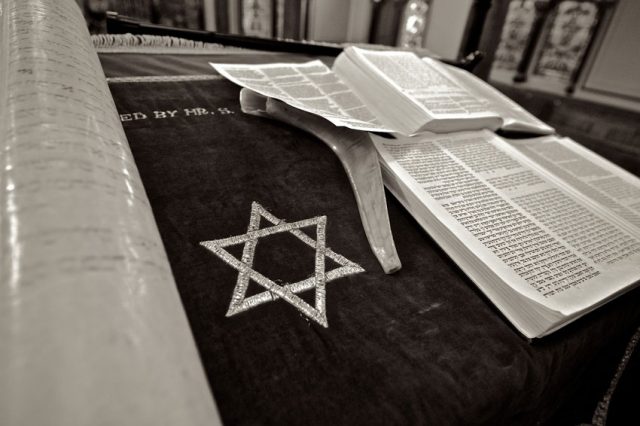
Over the years, I have met many secular Jews longing to reclaim their
Jewish heritage. They often recall a grandparent who was particularly observant
while their parents tended more toward the secular. This has led them to become
more secular themselves. In fact, they become fully immersed and integrated
into a society that knows little of Jewish heritage beyond what is shown to
them in movies and on television.
Nonetheless, many of these secularly-minded Jews experience some sort of
awakening. They realize through reading or talking with others that they may be
missing out on something. A feeling of being adrift or without roots is not
uncommon. They start to wonder, “How can I reclaim my Jewish heritage?”
That sounds like a daunting task, but it doesn’t necessarily have to be.
Think of reclaiming your heritage as being more of a journey than a
destination. Throughout the years of your study and exploration, you become
increasingly knowledgeable and more connected to your ancestors and the lives
they led.
As all journeys must begin, this one starts with a single step.
The earlier generations of your family may have vivid memories of
celebrations and observances from their childhood or their years as a young
adult. Sit down and have an in-depth interview with them now so that you can
capture those memories. Be sure to get at least an audio recording so the
interview, or series of interviews, can be preserved for future generations.
The more you know about your family’s personal observances and traditions, the
more you’ll feel connected to your Jewish heritage.
Resources like websites Jewishgen.org and Ancestry.com provide marvelous
resources to anyone who wants to connect with their heritage. Using them is
incredibly easy, as both websites have plenty of tutorials and “how
to” pages. If you are traveling to Europe on a heritage expedition, then
make a point of visiting the Jewish Genealogy & Family Heritage Center in
Warsaw. You’ll find a vast treasure trove of records that may provide even more
insight into your Jewish heritage.
Now that you’re familiar with the branches of your family tree, take it
a step further by purchasing a DNA kit from 23andme.com. The ancestry service
will reveal amazing things to you about your family. Often, you’ll discover a
few surprises along the way. Of particular interest is the “Ancestry
Composition” factor, which tells you from which of the 31 major population
groups around the world your DNA derives.
Photographs are precious, and they only become more so as the years go
by. Unfortunately, as older family members pass away, the stories told by the
images become blurry. Now is the perfect time to start a multigenerational
family photo album that is complete with in-depth captions. Remember to record
who is in each photograph, where and when it was taken and any special events
or observations that were occurring. This will become a treasured family
heirloom that provides you with a pictorial history of your Jewish heritage.
“Ulpan” is a Hebrew word for “instruction,” which
makes it a fitting moniker for a place to learn Hebrew. Several of these
institutes are found in Israel. Mainly, the programs offered are aimed at
helping new immigrants integrate into Israeli society. Learning Hebrew is the
main focus, but other classes touch on Israeli history and culture. When you
immerse yourself in one of these courses, you may gain an entirely new
perspective on your family history.
Devote yourself to a summer of learning Yiddish at one of the many
excellent language programs in New York. You can choose from programs at
well-regarded institutions such as the Yivo Institute for Jewish Research, The
Workmen’s Circle and the Yiddish Farm, which has particularly dynamic
Yiddish-language immersion programming that is combined with Jewish education
and sustainable farming. If you’d rather travel farther afield to find a
Yiddish classroom, you’ll find similarly well-recommended programs at Tel Aviv,
at the Vilnius Yiddish Institute in Lithuania or Lviv, Ukraine.
Jewish Community Centers are found in major cities across the U.S., with
some of the largest cities boasting several different Centers. Each one is
unique, but they all offer a wealth of educational, social and cultural
services. You may attend lectures, observe or participate in theatrical
performances or enjoy a few laps at an indoor pool. The offerings really are
that diverse, and all the while, you’ll be associating with other Jewish
community members who can enhance your understanding of and appreciation for
your Jewish heritage.







